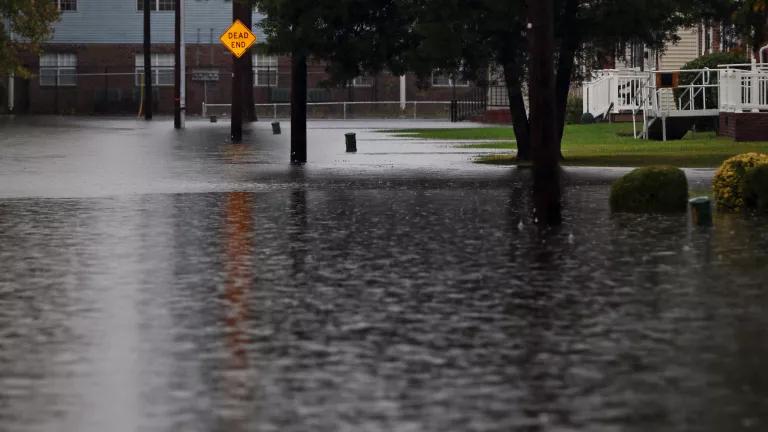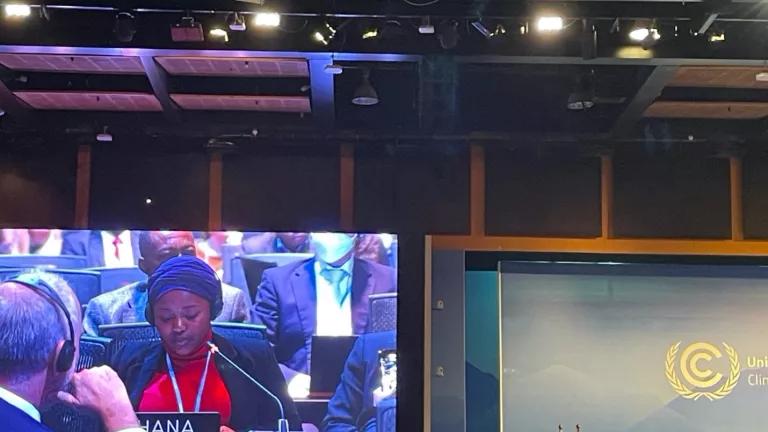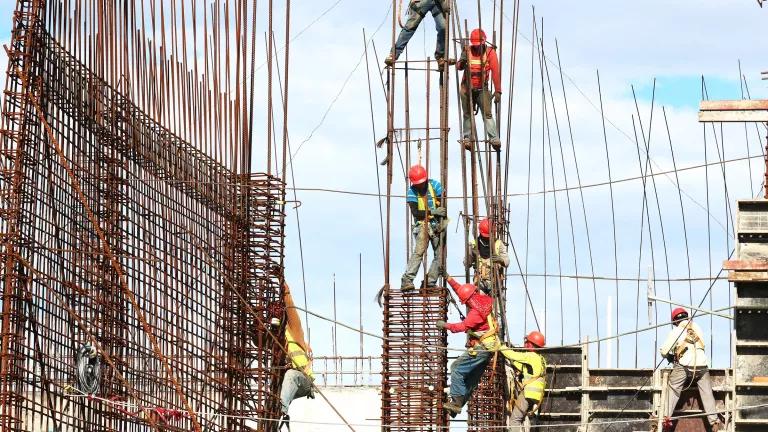A Year Later, the Equitable and Just National Climate Platform Is More Important Than Ever

All photos by Ralph Alswang for the Center for American Progress
We’re grateful to be part of a growing group of allies working alongside one another to move toward an equitable, fair, and pollution-free future.
This year, the COVID-19 pandemic, the major economic recession, and racial violence against Black people have laid bare the systemic racism and injustice that underlie long-standing social problems in this country that we’ve failed to fix for decades.
They have also underscored the fact that racial justice and climate justice are—and have always been—inextricably linked. And they have made clear that the solutions laid out in the Climate Forum’s Equitable & Just National Climate Platform, which celebrates its first anniversary this July, are needed now more than ever.
The platform was created by a diverse group of environmental justice and national environmental leaders, NRDC among them, to lay out a bold vision for solving the climate crisis with equity and justice at the forefront and embedded in policies curbing the pollution driving us toward catastrophe.
The platform has a guiding ideal that everyone—not just the powerful and privileged—should be able to breathe clean air, drink safe water, and live free from exposure to toxic chemicals and the terror and turmoil of climate change. But for too long, low-income communities and communities of color have been denied those basic rights.
The platform demands that racial, economic, and environmental justice be essential building blocks of any serious plan for national climate action. And it calls for an end to the injustice that has disproportionately harmed low-income, Indigenous, and Black and brown people—injustice that we know has turned their communities into environmental hazard zones.
For too long, industrial facilities have been located in Black, brown, Indigenous, and low-income communities, polluting the air they breathe and the water they drink.
For too long, these same communities have been unable to access health care coverage, leaving them especially vulnerable to pollution and illness.
For too long, these same communities have struggled to put food on their tables and pay basic living expenses because jobs don’t pay a living wage.
For too long, these same communities have been denied the opportunity to build capital for their families by banks refusing to lend them money to buy homes.
And finally, these same communities disproportionately bear the costs of extreme heat, raging storms, fires, and floods that result from climate change.
It is exactly this interconnectedness that the Equitable & Just National Climate Platform seeks to address. We cannot reduce the greenhouse gas pollution that fuels climate change in a vacuum—we must simultaneously advance the goals of economic, racial, climate, and environmental justice.
The platform also calls on us to work in new ways with each other. Last summer, when my colleague Mitch Bernard signed NRDC onto the platform, he observed that historically major environmental groups like ours have not done enough to bring frontline communities into the process when we’re writing reports, developing policies, advocating for change, and fighting legal battles.
The platform marked a long-overdue step to fix that imbalance and strengthen the climate movement by putting the voices, views, and ideas from frontline communities at the forefront, with justice and equity baked into our core set of solutions.


Over the last year, and especially over the last several months, NRDC has been working to put the goals of the platform into action in the public policy arena and with partners.
Among the steps we’ve taken, we’ve called for equity and justice to be central to COVID relief and recovery. We’ve supported infrastructure investments in the Moving Forward Act to promote safe water, protect workers, preserve nature, and curb climate damages in our communities.
And we’ve advocated for and championed the landmark report from the House Select Committee on the Climate Crisis that spotlights the need to address environmental justice throughout its more than 500 pages.
This broad and commonsense package of policies, when advanced by our national political leaders, will put people to work in clean energy, reduce pollution in communities where it is the highest, and make our country more resilient to the challenges ahead.
Throughout the year, the Equitable & Just National Climate Platform coauthors have also been instrumental and outspoken: on COVID-19 relief, on protecting the people’s right to be heard in proposed infrastructure projects, and on the climate crisis committee’s report.
We’re grateful to be part of a growing group of allies that include environmental justice leaders from across the country, working alongside one another to move everyone, in all communities, toward an equitable, fair, and pollution-free future.
And we draw inspiration from leaders like Representative John Lewis, the civil rights icon who passed away recently and urged us to persevere in our pursuit of justice. As he so eloquently put it: “Do not get lost in a sea of despair. Be hopeful, be optimistic. Our struggle is not the struggle of a day, a week, a month, or a year, it is the struggle of a lifetime.”
While the progress we’ve made in advancing the climate platform’s agenda over the past year gives us so much hope, we know we still have a long way to go. But we’re committed to getting there—and together, we will.



